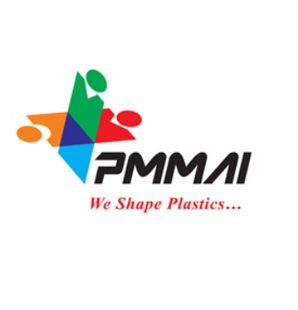By Steve Toloken
STAFF REPORTER / ASIA BUREAU CHIEF
Published: June 26, 2014 2:36 pm ET
Updated: June 26, 2014 2:39 pm ET

After winning steep tariffs against Chinese-made injection molding machines, India’s domestic machinery industry is accusing the Chinese of continuing to “dump” equipment by using factories in third countries.
The Plastics Machinery Manufacturers Association of India made the disclosure in its filing to the Indian government asking for the tariffs on Chinese equipment to continue for another five years, through at least 2019.
The New Delhi-based PMMAI noted that its largest Chinese competitor, Haitian International Holdings Ltd., set up a factory in Vietnam in 2011, and it said that Vietnamese machinery exports to India nearly tripled last year. It also suggested it would target the Philippines.
“While imposition of [an] anti-dumping duty led to decline in Chinese imports and the same provided relief to the domestic industry, the Chinese producers resorted to continued dumping of the product under consideration by setting production facilities outside China (primarily in Vietnam and Philippines),” the PMMAI said. “Despite the existing anti-dumping duty, the Indian industry could not get fair market opportunity.”
India’s machinery industry in 2009 lobbied the country’s government to put anti-dumping duties of between 60 and 174 percent on a broad range of molding machines from mainland China, effectively pricing them out of the market.
PMMAI said it was preparing a new filing to the Indian government asking for more tariffs: “These imports are also at dumped prices and the petitioners are in the process of filing fresh petition in respect of imports from these countries.”
The head of the China Plastic Machinery Industry Association, Borche Zhu, did not respond to a request for comment, but some executives in the Chinese industry disputed that there was any illegal dumping, saying instead that their country’s much larger industry was more efficient.
“Nobody is dumping, [it’s] just larger scale and larger efficiency,” one Chinese industry executive said, which results in “better Chinese cost/performance ratio.”
PMMAI’s filing noted that India’s domestic industry manufactured about 2,200 machines in each of the last three years, while China can make 15 to 20 times that amount. Haitian in 2012 on its own made 22,000 presses, with other large Chinese firms each manufacturing several thousand machines, the filing said.
PMMAI Chairman Mahendra Patel could not be reached and officials in its New Delhi office requested an email with questions for more details on its new anti-dumping proposal, including which specific countries would be targeted.
On June 19, the Indian government said it was extending the duties on Chinese-made machines for one year, until May 2015, as it reviews a longer extension and takes comments from all parties.
PMMAI’s decision may not sit well with India’s domestic plastics molding industry.
One prominent executive, Raju Desai, director of Jyoti Plastics Works Pvt. Ltd., told Plastics News in May that other industry groups could fight the PMMAI decision to seek to extend the China duties.
While the PMMAI petition singled out Vietnam and the Philippines as future targets, it did not specifically mention the largest source of Indian imports, Taiwan, as a possible target.
According to information in the group’s petition, Taiwan was the largest source of injection molding machines covered by the tariffs, both by number and value of machines, in each of the last three years.
Vietnam, however, rose quickly to become the second largest source of imported machines last year, rising from zero in India’s 2010-2011 fiscal year, to 218 machines in the 2012-2013 year.
Taiwan, by comparison, exported 383 machines last year, down from 721 the year before.
The Indian group said the domestic market has been weak the last few years, and it acknowledged that hurt the local industry’s financial performance. But it said it feared that if the tariffs against China were stopped, those companies would flood India’s market.
It said the domestic industry’s capacity utilization went from 67 percent in 2011 to 46 percent in 2013, and it blamed imports for a large part of the problems.
“Return on investments has declined significantly throughout the period,” PMMAI said. “This is due to continuous presence of dumped imports in the Indian market.”
The petition does not elaborate on why the group wants the Philippines included.
Chinese machine maker Tederic Machinery Co. Ltd. had a sizable manufacturing facility in the Philippines, but it told Plastics News in April that it sold that operation earlier this year (to its Indian agent) to prepare for an initial public offering in China’s stock market.
PMMAI is asking for the tariffs on behalf of four its members — Toshiba Machine (Chennai) Pvt. Ltd., Ferromatik Milacron India Pvt. Ltd., Windsor Machines Ltd. and Electronica Plastic Machines Ltd. — who collectively make up more than 90 percent of India’s domestic molding machine production.
The China tariff covers machines from 40-1,000 metric tons clamping force, that are not fully-electric. | 